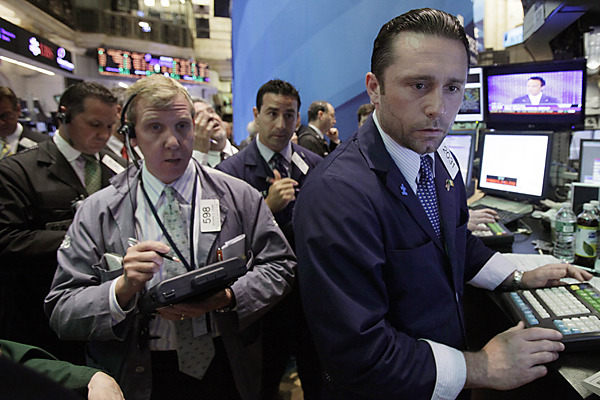On Monday, Shares of Ford Motor Co. (NYSE:F), gained 0.74% to $14.94.
Strong demand for its newest products lifted Ford Motor Company to its best July U.S. sales performance since 2006, with a total of 222,731 vehicles sold last month. Retail sales raised 5 percent.
“We continue seeing even stronger demand for our newest products, especially F-150, Explorer, Edge, Mustang and Transit,” said Mark LaNeve, Ford vice president, U.S. Marketing, Sales and Service. “With continued improvement in inventory, F-Series retail momentum continued building in July. Customers truly value the new F-150’s capability, performance and fuel efficiency.”
F-Series retail sales are up 13 percent, providing the best July retail results since 2006, even with continued all-time record transaction pricing – up $3,200 as compared to a year ago.
Van sales raised 14 percent last month with a total of 16,090 vehicles sold. The all-new Transit, which posted sales of 8,025 vehicles for July, drove Ford’s commercial van business to 15-year sales highs.
Ford Motor Company manufactures and distributes automobiles worldwide. The company operates through two sectors, Automotive and Financial Services. The Automotive sector develops, manufactures, distributes, and services vehicles, parts, and accessories. It offers vehicles primarily under the Ford and Lincoln brand names.
Shares of Hewlett-Packard Company (NYSE:HPQ), declined -1.64% to $30.02, during its last trading session.
Hewlett-Packard Company board of directors has declared a regular cash dividend of $0.176 per share on the company’s common stock.
The dividend, the fourth in HP’s fiscal year 2015, is payable on October 7, 2015, to stockholders of record as of the close of business on September 9, 2015.
HP has about 1.8 billion shares of common stock outstanding.
Hewlett-Packard Company, together with its auxiliaries, provides products, technologies, software, solutions, and services to individual consumers and small- and medium-sized businesses (SMBs), in addition to the government, health, and education sectors worldwide.
Finally, U.S. Bancorp (NYSE:USB), ended its last trade with -0.29% loss, and closed at $45.08.
U.S. Bancorp and Zions Bank, declared a renewable-energy tax-equity syndication agreement that will provide financing for the Red Horse 2 wind and solar project near Tucson, Arizona, owned by an associate of D. E. Shaw Renewable Investments L.L.C.
U.S. Bancorp launched its new renewable-energy investment syndication earlier this year, allowing first-time and practiced investors to take part in the renewable-energy tax-equity market. With this agreement, Zions Bank is co-investing with U.S. Bancorp and benefitting from U.S. Bancorp’s underwriting, structuring, and ongoing asset administration.
“Given our focus on sustainable energy production and Zions Bank’s interest in ensuring clean electricity sources for its customers in Arizona, this partnership was a success on all fronts,” said Chris Roetheli, vice president of U.S. Bancorp Community Development Corporation, the partner of U.S. Bancorp that is managing the transaction. “We welcome the opportunity to work with other companies that want to invest in renewable-energy tax equity.”
The syndication agreement demonstrates Zions’ continued support for sustainable energy financing.
“Zions is committed to assisting consumers and businesses realize the economic benefits of sustainable energy by becoming solar and wind energy users,” said Craig Robb, managing director of Zions Energy Link. “This investment demonstrates our commitment to increasing the capacity of renewable energy companies to provide more of these systems.”
U.S. Bancorp, a financial services holding company, provides a range of financial services in the United States. It offers depository services, which comprise checking accounts, savings accounts, and time certificate contracts; and lending services, such as traditional credit products, in addition to credit card services, leasing, financing and import/export trade, asset-backed lending, agricultural finance, and other products.
DISCLAIMER:
This article is published by www.wsnewspublishers.com. The Content included in this article is just for informational purposes only. All information used in this article is believed to be from reliable sources, but we make no representations or warranties of any kind, express or implied, about the completeness, accuracy, or reliability with respect to this article.
All visitors are advised to conduct their own independent research into individual stocks before making a purchase decision.
Information contained in this article contains forward-looking information within the meaning of Section 27A of the Securities Act of 1933 and Section 21E of the Securities Exchange Act of 1934, counting statements regarding the predictable continual growth of the market for the corporation’s products, the corporation’s ability to fund its capital requirement in the near term and in the long term; pricing pressures; etc.
Any statements that express or involve discussions with respect to predictions, expectations, beliefs, plans, projections, objectives, aims, assumptions, or future events or performance may be forward looking statements. Forward-looking statements are based on expectations, estimates, and projections at the time the statements are made that involve a number of risks and uncertainties, which could cause actual results or events to differ materially from those presently anticipated. Forward looking statements may be identified with such words as expects, will, anticipates, estimates, believes, or by statements indicating certain actions may, could, should/might occur.



